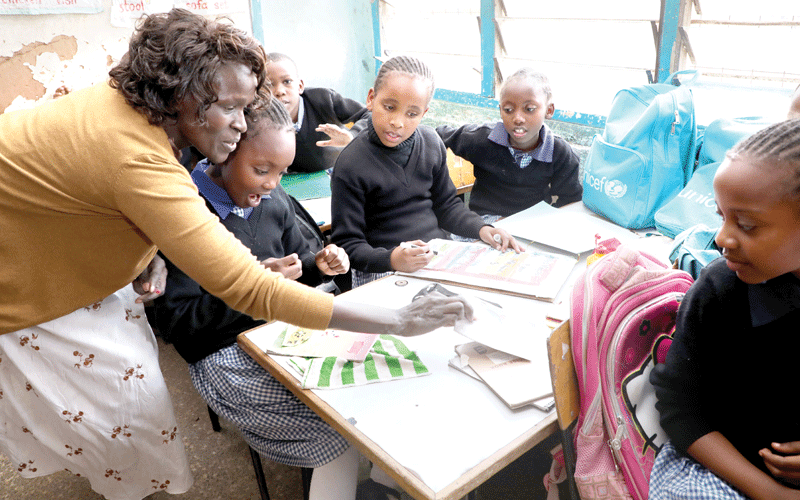Debunking claims that new curriculum is too costly

Grace Mwangi
Some parents are developing a negative attitude towards the new Competency-Based Curriculum due to the “many” books they have been asked to buy. But, nothing could be further from the truth.
In a press release last week, Kenya Institute of Curriculum Development clarified the system has nothing to do with parents being asked to buy a collection of books in the guise they relate to the curriculum.
Teachers are expected to make rational decisions on what is required to aid learning, depending on where a school is located.
The designs that the teachers rely on to prepare for lessons are clear on this. CBC advocates for use of locally available resources.
It encourages innovations, originality, imagination and creativity in carrying out tasks.
They do not, for instance, prescribe that something must be printed for it to pass the test of being CBC compliant.
The curriculum is designed to fix the disconnect between the world of education (school) and the world of work.
Our country needs more creative workers who are able to think for themselves and do something as opposed to those whose focus is white collar jobs. This will make Kenya globally competitive.
The journey of CBC started in 2009 when a summative evaluation of 8-4-4 was undertaken.
The task force on realignment of education to the Kenya Constitution 2010 and global standards recommended a competency-based curriculum.
The shift from the 8-4-4 system to CBC means turning the focus from teaching for exams and memorising facts to hands-on learning, understanding and learning in groups while appreciating the place of values in society.
It aims to support every child to become “empowered, engaged and an ethical citizen.”
Implementation of the new curriculum in phases is a deliberate, well-structured approach meant to ensure seamless transition without affecting learners in the subsequent years while paving the way of monitoring every stage of the implementation.
The CBC is being rolled out one year at a time, the first cohort of CBC piloted in 2017 and are now in Grade Five and expected to complete Grade 12 in 2028.
The last 8-4-4 cohort is now in Class 6 and are expected to complete Form Four in 2027.
CBC is learner centred. Its implementation deviates from the 8-4-4 mode of learning where the teacher was everything in class and the examination was the ultimate goal, to where the teacher is a facilitator assisting students to learn in groups and developing competencies, skills and each learner’s ability without viewing the slow learners as failures.
CBC has restructured the education system from 8-4-4 to 2-6-3-3. Pupils are supposed to take two years in pre-primary school, six years in primary and three years in junior secondary school.
If a student passes the Grade Nine exams, they can then join senior secondary school for three years after which one will join university for three years.
Examinations for Class Eight will be replaced by Grade Nine exams while Form Four will be replaced by Grade 12 exams.
In a nutshell, the aim of CBC is to shift from the talk-chalk learning mode to a hands-on mode of facilitating the learner to exploit their potential.
With clear understanding of CBC, we can all appreciate that our children are being nurtured to be of benefit to society, not a burden.
Teachers should not scare parents by passing huge bills to them in the name of CBC. Be creative and explore locally available materials to enhance practical learning. —muthonimwangi054@gmail.com















